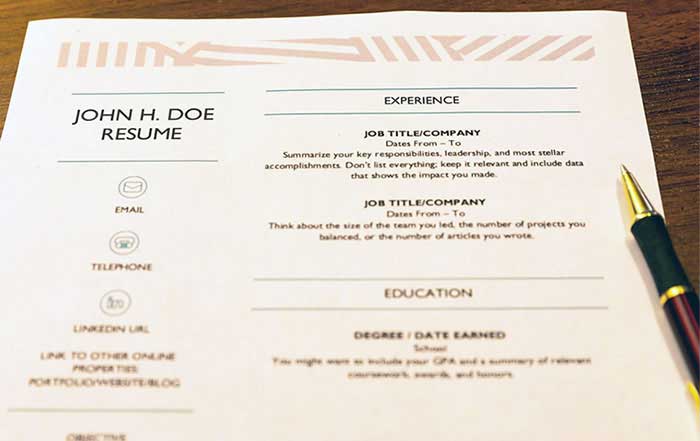There are many ways to write a resume but nobody is really sure what a recruiter is looking for and a good resume is what sets you apart from the crowd. That’s why you need to stand out, so you can be selected for an interview and eventually get the job you want. Here are some tips to help achieve that goal:
Although some people might tell you that you have to lie on your resume, that’s not the best advice. First of all, if might get you a job that is just not right for you. You’ll find yourself stressed out carrying tasks you are not qualified for. The other alternative is not that great. You might find yourself in a very awkward situation with the recruiter because they might see right through you on the interview and they will realise that you lied on your resume.
Polish your resume. You have to look after the small details because they might make you look bad. For instance, misspellings or grammatical errors might dissuade a recruiter from giving you a chance, no matter how qualified your resume says you are. They think that if you are not able to submit one resume, which is the presentation of your skills, in a neat way, then you are probably going to make sloppy mistakes on the job. You also have to pay close attention when you compose an email and in your cover letter.
Don’t fuss about the objective. It has become common practice to include your ultimate career goal on your resume, but this might have nothing to do with the particular position you are applying for. You might want to give this space a better use than writing down your objective.
You might want to just list relevant experience. Remember that recruiters don’t have much time to view all the CVs they get and they will probably just skim through yours. That is why it is important to only include relevant experience to the position you are applying for on your resume. Otherwise, they might be overwhelmed by all the information on your CV and ignore the relevant experience you’ve had. As to the relevant experience, education is not enough. Recruiters want to see you’ve had unpaid internships, work experience, or volunteer work on your resume.
Apart from your work experience and your education, recruiters also want to see your accomplishments and how you stood out in a particular task.
When it comes to accomplishments and strengths, you don’t have to include your personal skills. Let the recruiter see that for himself/herself on the interview. Focus instead on your work experience, accomplishments, degrees earned, and contact information on your resume.
Regardless of how wonderful your resume is, you also need to submit a cover letter. The cover letter allows you to be more creative and let your personality shine through while you explain your experiences, education, and accomplishments and why they are relevant to the position you are applying for. You also have to take care of the details on your cover letter, avoiding the misspellings, grammar errors, untruths and other common mistakes that could make you like a less-than-ideal candidate.
Make sure you add the phone and email address you use most often, so you don’t miss out on an opportunity by failing to respond to their invitation to an interview on time.
At the top of your CV, add a summary of your experience and include specific experience that is relevant to the job to which you are applying.
Hays, a leading British company providing recruitment and human resources services, also advises you to work backwards from your most recent job and don’t leave any gaps (if you travelled, say so); if you are a graduate without much experience, highlight the relevant skills that you gained in your course; list your highest qualifications by institution, course name and grade achieved; make sure to include any training courses or professional/industry standard qualifications; include any memberships to chartered institutes or relevant organisations.
At the end of the resume, you should state that references are available on request. However, you don’t actually have to include references at that stage, unless asked to do so.

